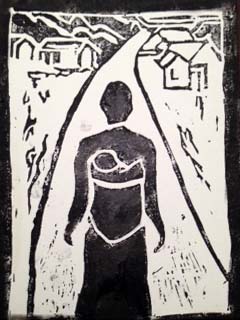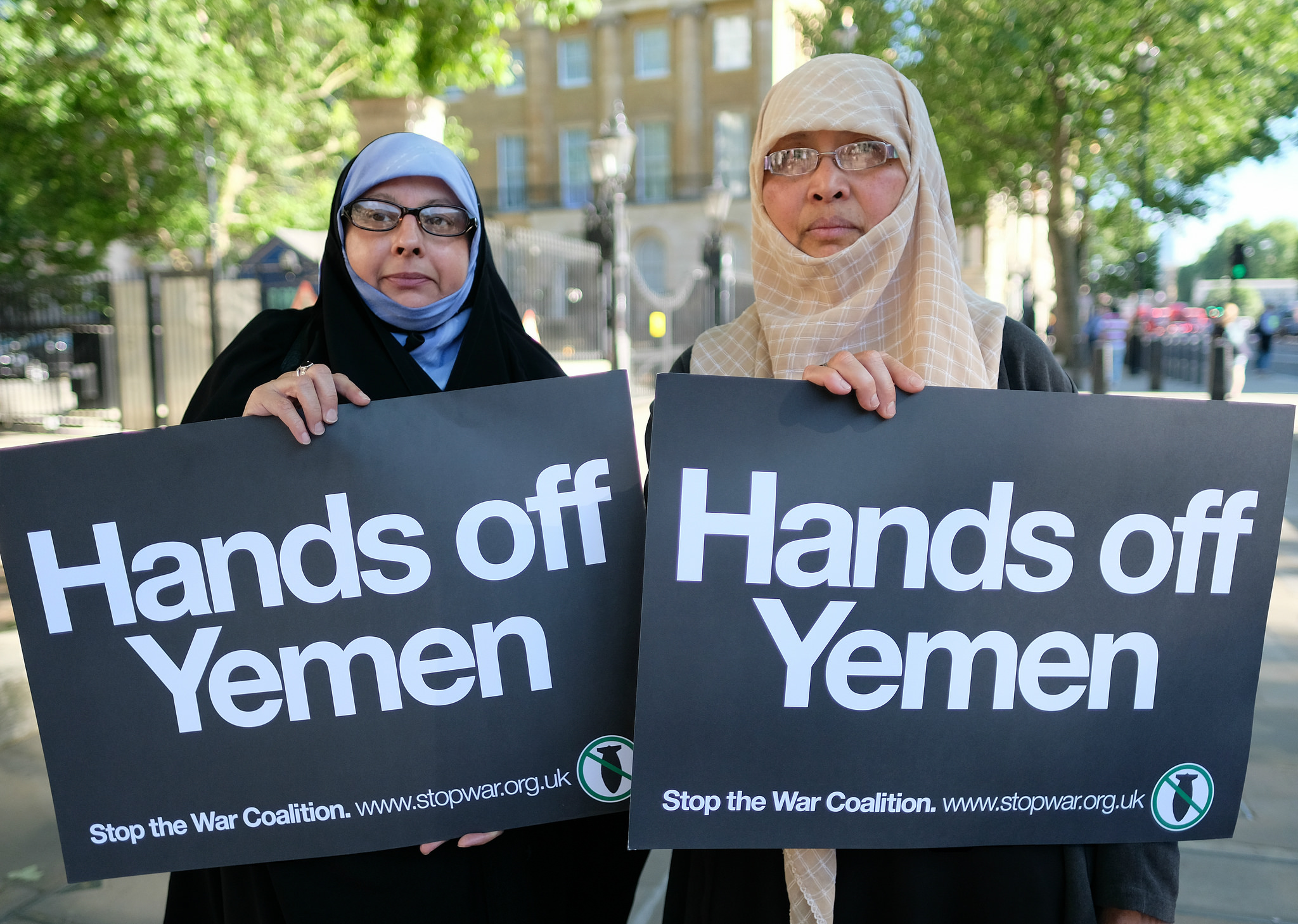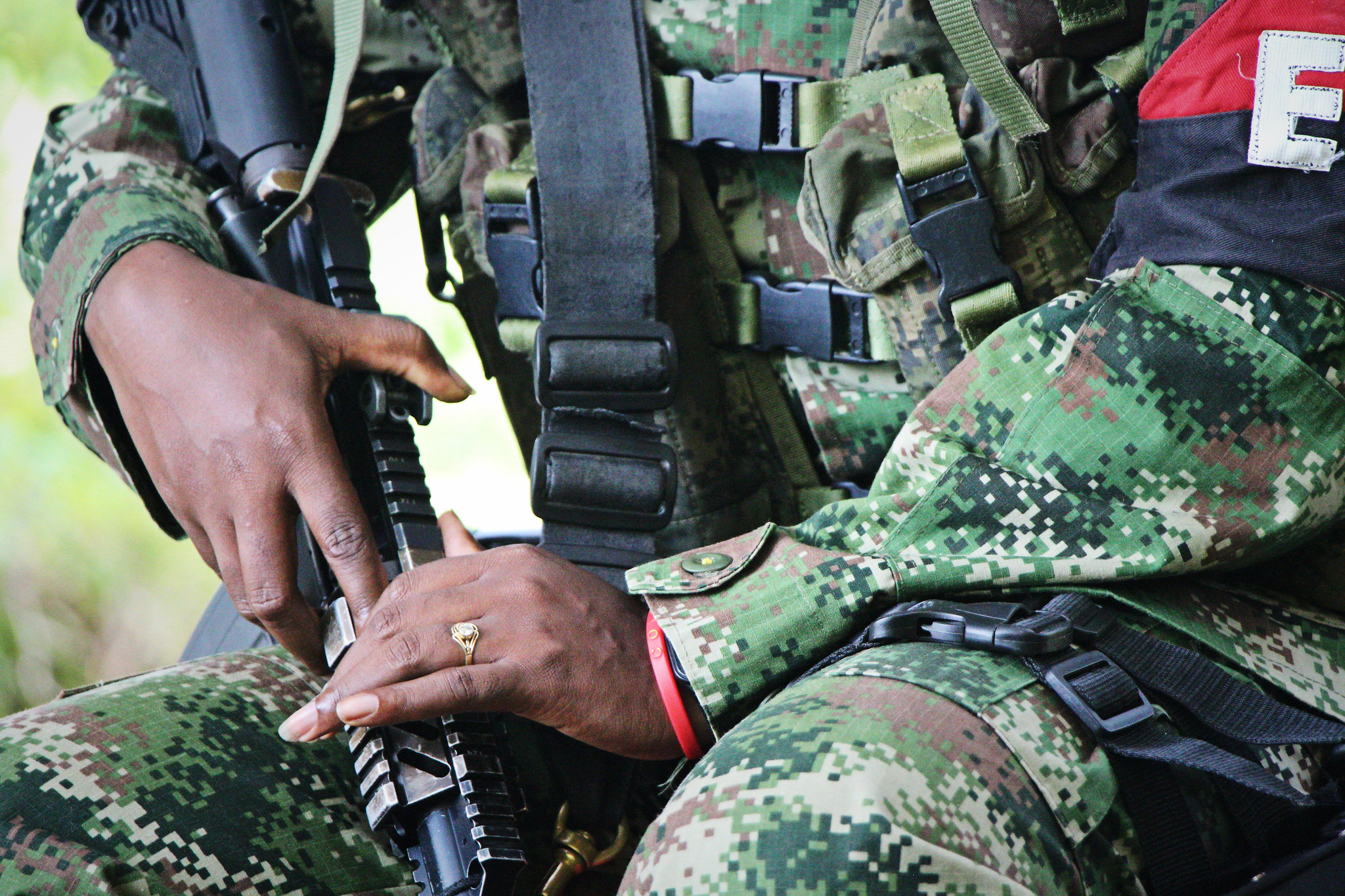Post by Dawn Brancati.
The Broadway show Eclipsed, written by Danai Gurira and starring Lupita Nyong’o (Oscar-winning actress of Twelve Years a Slave), has been nominated this year for six Tony Awards. Eclipsed is about the lives of five Liberian women forced into marriage with a rebel commander during the Second Liberian Civil War. In light of the play, I interviewed Evelyn Amony, who was abducted as a child and forced into marriage with Joseph Kony for twelve years during the Ugandan Civil War. Amony has written about her experience in her memoir, I Am Evelyn Amony (Evelyn’s responses have been lightly edited for flow and clarity).
Brancati: In the foreword of your book, Evelyn, you say that you wrote your memoir to tell people in Uganda what happened to you and to clarify misperceptions that you could have escaped. Your book, though, and the play Eclipsed are also seen by audiences untouched by civil war outside Uganda. What good, if any, do you hope can come of sharing your story, and those of other women forced into marriage with rebel soldiers, among these audiences?
Amony: It can bring change in the whole world because people will have known the dangers of war. It will also help women in that, despite the fact they have experienced forced marriage, they can do something to bring change in other women’s lives.
Brancati: In the play, there are a number of humorous moments among the rebel wives, many of which involved Wife #3 and her wigs. Do you have any memories of funny moments while living in the bush? Would you mind sharing one?
Amony: I recall from the bush Mzee Ray was told to climb a tree backwards as a punishment; it is impossible to climb a tree from the back. Everyone in the defense (the rebel army) laughed at him that day. He was a midwife and, while checking on the stage if the child is about to come out, instead of using his fingers or a safe method he used grass to check if the child is about to come out. The grass pierced the child and he was punished for it.
One day, one of the ladies went to harvest simsim. She went and slept with a boy in the garden and when she returned people began to sing that she helps those in need. People sang and danced, and she also danced along with the song as though people were not mimicking her.
Another thing I still laugh at is one day one of the ladies mingled a lot of posho for lunch. Ladies used to mingle posho but would not give the child soldiers any, keeping it to themselves. One day people’s houses were searched and stale posho was found in her house. She was told to eat it and drink 5 litres of water. She couldn’t drink it and kept on choking.
Brancati: In your memoir, we see many different sides of ladit [Joseph Kony]. At times, he was very kind to you, at others cold and brutal, and at still others, paranoid, preoccupied with how others thought of him, and dependent on you. How would you describe ladit and your feelings towards him today?
Amony: I have forgotten him. I don’t think of him or dream of him. I only recall him when I see his children.
Brancati: In the play, the commander’s wives try to regain the control that they lost over their lives when they were kidnapped in different ways. Wife #1, for example, took charge of the household, protecting the other wives, and learned to write her real name, while Wife #2 and Wife #4 joined the rebels and fought alongside them. Were there any times while living in the bush that you felt empowered or in control over your life in some way?
Amony: I didn’t have a voice in the bush. There was only one time I was a store keeper for the household, but this did not last long because I could not handle it. It was not easy; some women wanted more, yet the rule was for everyone to get an equal share. If food got finished, the store keeper was held responsible that he/she was not rationing the food well.
Brancati: Among those that were abducted during the war, how are the struggles that women face in rejoining their communities different from those encountered by men?
Amony: First of all, women returned with children but men came without children. Men came back alone and abandoned the women. The woman has to get school fees, food, etc. Women are finding it hard to settle. When they get married, men leave them because of the children they returned with. Men rejoined the army but women could not because of the children. Instead, women had to go for skills training; very few men went for skill training. Women who returned have not been allowed the opportunity to go back to school. Men who returned, such as commanders, were taken back to school by the government. This was not done for the women. The only women who went back to school were those who were abducted from their school such as Sacred Heart, YY School, St. Mary’s Lacor, and Aboke. Women also face more stigma in the community because of children.
Brancati: What has been the reaction of people in Uganda to you sharing your story in this book? How is your life different since the book was published?
Amony: Those who have read the book and know me, they call me and tell me it’s a good book. Others say it can help in learning. Others say it is sad. Others say it has helped them learn of what happened to us in the bush. Writing the book has made me strong. In the past I used to get ashamed of what happened but now I am not. I have more courage to work with women and children.







